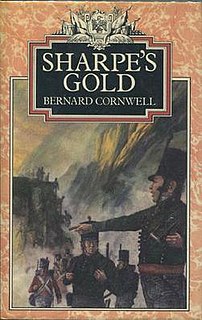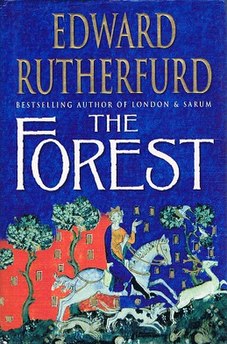Robert Wood is a British psychologist and writer.
Robert Wood is a British psychologist and writer.
Robert Wood was born on 10 March 1941 in Gosforth, Newcastle upon Tyne. Born to an English father and a Welsh mother, Wood was raised in Sunderland. After a grammar school education, Wood attended the University of Nottingham in September 1959 where he studied Mathematics and Statistics. On graduating, Wood began training to be an actuary and worked for short spells as a supply teacher, and statistician with Tate & Lyle. In the autumn of 1964 Wood secured a post at the National Foundation for Educational Research where he conducted the first study of a new area called item banking. This study resulted in his first book Item Banking. Wood then went on to study at the University of Chicago, having received a fellowship, and was awarded a PhD in 1971.
Wood returned to the UK in July 1971, and took up the position of director of research at the University of London School Examinations Department. It was here that, among other things, Wood organised the 1979 conference Rehabilitating psychometrics for the Social Science Research Council. In 1980 Wood was seconded to direct the Evaluation of Testing in Schools Project at the Institute of Education, and the University of London. The following year Wood moved to Jamaica where he served as Professor of Educational Measurement in the University of the West Indies. In early 1984, Wood took up a Fellowship at Flinders University in Australia. Later in the year Wood was appointed director of the New Zealand Council for Educational Research, but declined to take up post citing personal reasons.
Having become an associate of the British Psychological Society during the 1970s, Wood was in a position to start a new career in England as a business psychologist. In 1985 Wood helped to establish a consultancy called Psychometric Research & Development Ltd with an office in St Albans. Wood was made a Fellow of the British Psychological Society in 1986 and for the academic year 1987–88 he was visiting professor at the London Institute. In 1990 he joined Pearn Kandola Occupational Psychologists in Oxford and remained there until early 2000. From 1998 to 2005 Wood was a special professor in the School of Education at the University of Nottingham. In 1998 the same university conferred on him the degree of DLitt in recognition of over 120 published books, monographs and articles.
Concerning his memoir Mackem Mayhem (2004), a review in the Sunderland Echo (29 April 2005) said: "As a work of literature it is a gem." There followed the three novels comprising the Moving Deckchairs trilogy. Eight of his short stories have received commendations in various competitions. He has since written walking books: the first appeared in 2009, the second in 2010 and the third and fourth in 2011.[ citation needed ]

Psychometrics is a field of study within psychology concerned with the theory and technique of measurement. Psychometrics generally refers to specialized fields within psychology and education devoted to testing, measurement, assessment, and related activities. Psychometrics is concerned with the objective measurement of latent constructs that cannot be directly observed. Examples of latent constructs include intelligence, introversion, mental disorders, and educational achievement. The levels of individuals on nonobservable latent variables are inferred through mathematical modeling based on what is observed from individuals' responses to items on tests and scales.
Christopher Riche Evans was a British psychologist, computer scientist, and author.

The Rorschach test is a projective psychological test in which subjects' perceptions of inkblots are recorded and then analyzed using psychological interpretation, complex algorithms, or both. Some psychologists use this test to examine a person's personality characteristics and emotional functioning. It has been employed to detect underlying thought disorder, especially in cases where patients are reluctant to describe their thinking processes openly. The test is named after its creator, Swiss psychologist Hermann Rorschach. The Rorschach can be thought of as a psychometric examination of pareidolia, the active pattern of perceiving objects, shapes, or scenery as meaningful things to the observer's experience, the most common being faces or other pattern of forms that are not present at the time of the observation. In the 1960s, the Rorschach was the most widely used projective test.

Rudolf John Frederick Lehmann was an English poet and man of letters. He founded the periodicals New Writing and The London Magazine, and the publishing house of John Lehmann Limited.
Robert Malcolm Ward "Bob" Dixon is a Professor of Linguistics in the College of Arts, Society, and Education and The Cairns Institute, James Cook University, Queensland. He is also Deputy Director of The Language and Culture Research Centre at JCU. Doctor of Letters, he was awarded an Honorary Doctor of Letters Honoris Causa by JCU in 2018. Fellow of British Academy; Fellow of the Australian Academy of the Humanities, and Honorary member of the Linguistic Society of America, he is one of three living linguists to be specifically mentioned in The Concise Oxford Dictionary of Linguistics by Peter Matthews (2014).

Quantitative psychology is a field of scientific study that focuses on the mathematical modeling, research design and methodology, and statistical analysis of psychological processes. It includes tests and other devices for measuring cognitive abilities. Quantitative psychologists develop and analyze a wide variety of research methods, including those of psychometrics, a field concerned with the theory and technique of psychological measurement.

Sharpe's Gold is the second historical novel in the Richard Sharpe series by Bernard Cornwell first published in 1981. The story is set in August 1810 and features the destruction of Almeida during the Peninsular War.
David Victor Canter is a psychologist. He began his career as an architectural psychologist studying the interactions between people and buildings, publishing and providing consultancy on the designs of offices, schools, prisons, housing and other building forms as well as exploring how people made sense of the large scale environment, notably cities. He set up the Journal of Environmental Psychology in 1980. His work in architecture led to studies of human reactions in fires and other emergencies. He wrote about investigative psychology in Britain. He helped police in 1985 on the Railway Rapist case. He was the professor of psychology at the University of Surrey for ten years, where he developed investigative psychology described in detail in Investigative Psychology: Offender Profiling and the Analysis of Criminal Action and a course curriculum. He set up and was director of the Centre For Investigative Psychology, which is based at the University of Liverpool. From 2009 he was at the University of Huddersfield, where he directed the International Research Centre in Investigative Psychology. He retired from there in 2018. He is emeritus professor at the University of Liverpool and continues to publish in environmental and crime/forensic psychology.

Brian J. Ford HonFLS HonFRMS is an independent research biologist, author, and lecturer, who publishes on scientific issues for the general public. He has also been a television personality for more than 40 years. Ford is an international authority on the microscope and is well respected as an academic .Throughout his career, Ford has been associated with many academic bodies. He was elected a Fellow of Cardiff University in 1986, was appointed Visiting Professor at the University of Leicester, and has been awarded Honorary Fellowship of the Royal Microscopical Society and of the Linnean Society of London. In America, he was awarded the inaugural Köhler Medal and was recently recipient of the Ernst Abbe medal awarded by the New York Microscopical Society. In 2004 he was awarded a personal fellowship from NESTA, the National Endowment for Science, Technology and the Arts. During those three years he delivered 150 lectures in scores of countries, meeting 10,000 people in over 350 universities around the world.
Ronald Leslie Dawson is a Special Educational Needs (SEN) educator, psychologist, researcher and author and co-author of numerous books and articles concerning the education of pupils with SEN. His most important publication is The Macmillan Teacher Information Pack (TIPs), a pack of informative materials to assist teachers of pupils with special educational needs in mainstream and special schools. He has also written two novels and six children's story books. In 2012 he wrote the lyrics and co-composed the music of "Lest we forget", a song of Remembrance. It was first performed in public on 16 September 2012 by the Wellington Male Voice Choir in the New Zealand Parliament building at the inauguration of New Zealand's Malayan Veterans Day. It has since been performed at Remembrance Services, Concerts and Memorials in the UK, Australia, Canada and Cyprus. In 2014 he wrote the lyrics and co-composed the music a novelty dance song "The Brazilian Attack", which was recorded by the Copacabana Brass. He created, wrote, directed and produced the National Children's WW1 Remembrance Concert at the National Exhibition Centre on the 3rd of November, 2018.

The Forest is a historical novel by Edward Rutherfurd, published in 2000. Drawing on the success of Rutherfurd's other epic novels this went on to sell well and appeared in numbers of bestseller lists.

Michael Louis Friendly is an American-Canadian psychologist, Professor of Psychology at York University in Ontario, Canada, and director of its Statistical Consulting Service, especially known for his contributions to graphical methods for categorical and multivariate data, and on the history of data and information visualisation.
Sir Adam Roberts is Emeritus Professor of International Relations at the University of Oxford, a senior research fellow in Oxford University's Department of Politics and International Relations, and an emeritus fellow of Balliol College, Oxford.
Joe Moran is a social and cultural historian who has written about everyday life, especially British everyday life from the mid-twentieth century until the present day.

Peter Francis Saville was a British chartered occupational psychologist specialising in psychometrics, personality and talent management.

Welly throwing, also known as welly hoying, welly wanging and boot throwing, is a sport in which competitors are required to throw a Wellington boot as far as possible. The sport appears to have originated in the West Country of England in the 1970s, and rapidly became a popular activity at village fêtes and fundraising events across Britain. The sport is now played in many different countries, including Australia, Estonia, Finland, Germany, Ireland, Italy, New Zealand and Russia.
Clive Seale is a British sociologist. He is Professor of Sociology at Brunel University. Until 2012, he was Professor of Medical Sociology in the Institute of Health Sciences Education at Queen Mary, University of London, England.

An assessment day is usually used in the context of recruitment. On this day, a group of applicants who have applied for a particular role are invited to an assessment centre, where a combination of selection techniques are used by the employers to measure the suitability of an individual for the job role. These selection technique usually include exercises such as presentation, group exercise, one to one Interview, role play, psychometric test etc. Most large organisations like banks, audit and IT firms use assessment days to recruit the fresh talent in their graduate programmes. With an increase of popularity of assessment days, several training institutes have been formed that prepare candidates for assessment days, for example, Green Turn is a famous institute that prepares candidates for assessment days of big 4 accountancy firms.
Stephen A. C. Gorard is a British academic who specialises in the sociology of education. He is Professor of Education and Public Policy at Durham University.
A self-test of intelligence is a psychological test that someone can take to purportedly measure one's own intelligence.